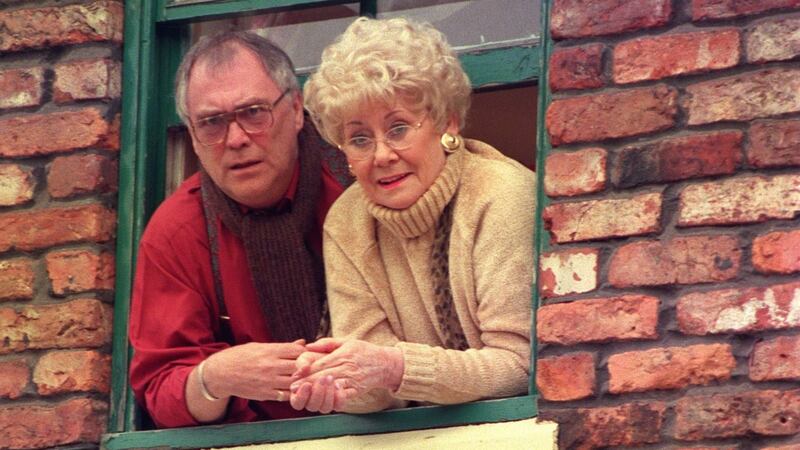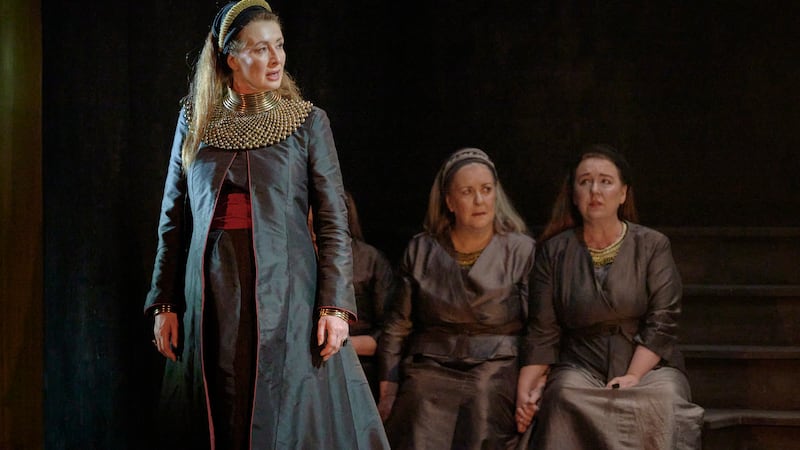GO mbeannaí Dia daoibh, a chairde, welcome my chums and chumettes to another unputdownable episode of the Bluffer’s Guide to Irish.
How are yez all getting on? Is your world full of peace and love or are you in a mood with HIM or HER.
I hope it is the former.
Síocháin - peace is something we can all be doing with, whether it’s on the political front or with a comhoibrí - a work colleague or between you and a cara - a friend or a ball teaghlaigh - a family member.
Let’s face it, people can get on our nerves no matter how much we like them.
Cuireann do dhiúltachas isteach orm - your negativity annoys me and you can swop all kinds of bad behaviour for negativity - you’ll find the Irish word in focloir.ie.
Of course, some people are annoying without knowing. Maybe they don’t realise they have B.O. or they’re driving too close to your tail-light and let’s not start talking about bathrooms and toilet seats!
Sometimes, you are unsure as to whether someone is genuinely innocent or whether they have been spoiling for a fight all along.
An bhfuil tusa ag iarraidh olc a chur orm? - are you trying to annoy me? you could ask, although if you have to ask, the odds are that they are.
D’aonturas means on purpose or deliberately so níor chuir sé cuireadh orm d’aonturas - he didn’t invite me deliberately.
Of course, it might just all have been a silly misunderstanding.
Ní raibh sé de rún agam tú a ghortú - I didn’t mean to hurt you or it wasn’t my intention to hurt you is a way of de-escalating a possible achrann - a quarrel – whether you mean it or not.
Arguments can begin for a trillion reasons, most of them trivial.
Cé aige a bhfuil an cianrialtán? Who has the remote control? can lead to bloodshed as Opry an Iúir is about to start.
Cé leis na héadaigh seo? - Who owns these clothes? is another question which can lead to weeping and gnashing of teeth as you try to tidy the living room.
The bathroom is indeed a major battlefield that often causes people to fall out.
Cé a bhain úsáid as mo ...? who used my ...? and again you can look up the dictionary for the belongings you hate people other people using ie toothbrush, curlers, phone charger, electric razor, bikini trimmer etc.
if you are having a chat with friends you can trust, you can say tá mé ar buile leis/léi - I am livid with him/her and that is usually followed by a statement that the offending party must come up with a sincere leithscéal - an apology or that’s it.
But in the words of the song, "the best part of breaking up, is when you’re making up."
Misunderstandings can be quickly sorted out; deeper wrangles can take much longer but when it gets to the bickering stage, you have to ask yourself if it is worth all the bother
Then there is the silence or the inarticulacy which come together that get people in adharca a chéile - at each others throats.
Anyway, that’s the end of the negativity. Isn’t it amazing how, after a blazing row, two people can ask themselves “What did that all start over?”
CÚPLA FOCAL
síocháin(sheeakhaan) - peacecomhoibrí(co-ibree) - a work colleagueball teaghlaigh(baal chaowlee) - a family membercuireann do dhiúltachas isteach orm(keran daw yooltakhiss istyakh orim) - your negativity annoys mean bhfuil tusa ag iarraidh olc a chur orm?(un wil tussa eg eeree ulc a kher orim) - are you trying to annoy me?níor chuir sé cuireadh orm d’aonturas(neer kher shay keroo orim daynturiss) - he didn’t invite me deliberatelyní raibh sé de rún agam tú a ghortú(nee ro shay de roon ugum too a gortoo) - I didn’t mean to hurt youachrann(akhran) - a quarrelcé aige a bhfuil an cianrialtán?(cay iyge a wil un keeanreealtaan) - Who has the remote control? cé leis na héadaigh seo?(cay lesh na haydee shaw) - Who owns these clothes?cé a bhain úsáid as mo ...? (cay a win oosaadge iss maw ..) - who used my ...? tá mé ar buile leis/léi(taa my er bwilye lesh/leyha) - I am livid with him/her leithscéal(leshcayl) - an apologyin adharca a chéile(in erka a cayla) - at each others throats


